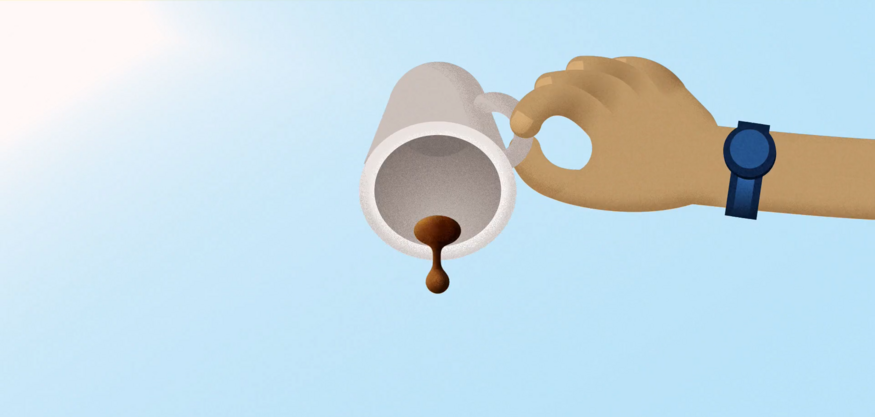Your Morning Coffee - It Isn't an Unlimited Resource

1 October 2017
1 October 2017 - On World Coffee Day, Crop Trust Executive Director, Marie Haga, pens an opinion piece in Business Green, warning that our daily cup of coffee is at risk from climate impacts unless urgent action is taken.
From Nairobi to New York, for millions of people around the world, coffee is the only way to start the day. It brings communities together and provides financial income for millions. We have many great reasons to celebrate International Coffee Day today.
But we also have reasons to be concerned. Demand for coffee is rising, but in 2016 inventories of coffee reached a five year low. Simultaneously, the effects of climate change are increasing the risk of diseases and pests and affecting yields. This endangers the coffee bean, the land it grows on and the livelihoods of 125 million people in over 70 countries around the world.
There is one thing that could solve many of these issues: the biodiversity of coffee itself. But that diversity too is under threat, and once the genetic diversity of coffee is gone, it's gone forever. Steps can be taken to safeguard its future. They must be taken now, before it's too late.
Overexposed to climate risk
Currently, only two of the 125 coffee species - Arabica and Robusta - are being used for coffee production, and within those two species we are using just a few varieties. In other words, we are working with a tiny fraction of the coffee diversity available to us. What's more, Arabica coffee - which accounts for about 60 per cent of total coffee production - is extremely climate sensitive: 75 per cent of the land dedicated to growing Arabica beans will become unsuitable for coffee production within the next 50 years, according to the Climate Institute.
The result is crops, which are very exposed to diseases and pests and a supply chain and the livelihoods of farmers at risk. The coffee leaf rust epidemic in 2012-2015, for example, caused job losses of 1.7 million, which could have been mitigated if resistant varieties had been available.
Like many other food plants, the coffee crop is in trouble because our climate is changing faster than it can adapt. If we don't look after the coffee biodiversity we still have, we'll all be poorer for it.
The role of genebanks
The key to meeting these challenges lies in conserving and using the biodiversity of coffee. Coffee diversity is conserved on the farms of growers and in protected wild areas such as national parks. It can be used to develop new varieties with improved resilience and perhaps even better taste, but it needs to be accessible to researchers. That's why there are over 20,000 different types of coffee plants at research stations, in so-called field genebanks. These rows and rows of coffee trees have been gathered over the years from around the world and carefully tended by the researchers and plant breeders to ensure our coffee cup will be on the breakfast table tomorrow.
But for how long?
Maintaining these collections of coffee biodiversity is expensive and the countries that house them not rich. They need help.
The Crop Trust is the only organisation working worldwide solely to create, fund and manage an efficient and effective global system of collections of crop diversity to secure the future of agriculture. And that includes coffee.
In an effort to meet the challenges facing coffee diversity and the collections which help to conserve it, the Crop Trust has partnered with World Coffee Research to develop a global conservation strategy for the crop. We think that implementing it will go a long way to ensure the future of coffee.
If not addressed, the challenges facing coffee production could force farmers to abandon the crop. This would mean an end, not just to enjoying coffee as we know it, but to the livelihoods of the millions of people who rely on coffee for their daily income - impacting their ability to pay for food, medicines and school fees. From the farmer to the barista, by way of the roaster and trader - everyone in the coffee business depends on a sustainable approach to coffee farming, and that starts with conservation of its diversity.
Sounds expensive, though, doesn't it? The reality is that about $1m a year will support the world's most important collections of coffee diversity. In the UK, people drink approximately 55 million cups of coffee a day. If everyone gave 1.3 pence for every cup consumed on just one day - the annual target would be met. Not that much after all, is it?
At the Crop Trust, we are playing our part - working to raise a global endowment to provide this funding - but, on this International Coffee Day, we are calling upon governments, companies and consumers to pitch in. Will it be worth it? Can you imagine Monday mornings without coffee?
- Work
SAVE COFFEE
LEARN MORE
Category: Climate Change
